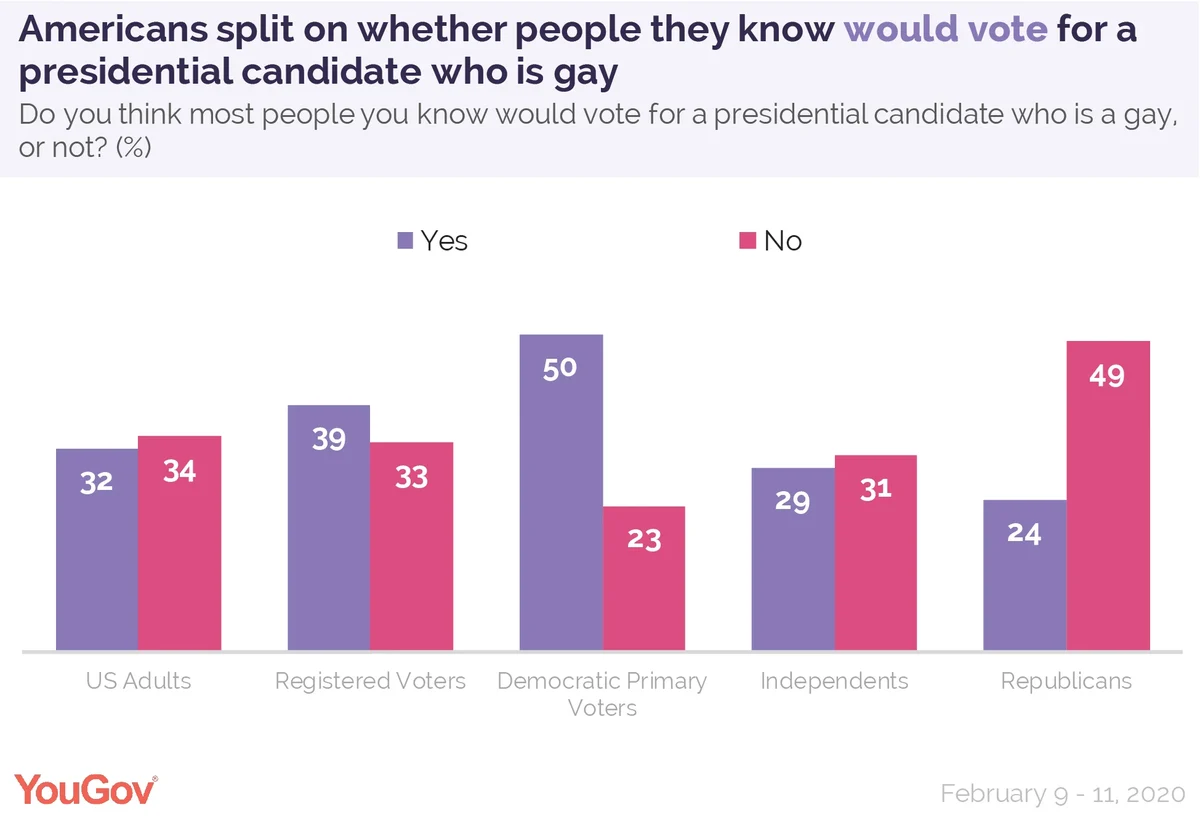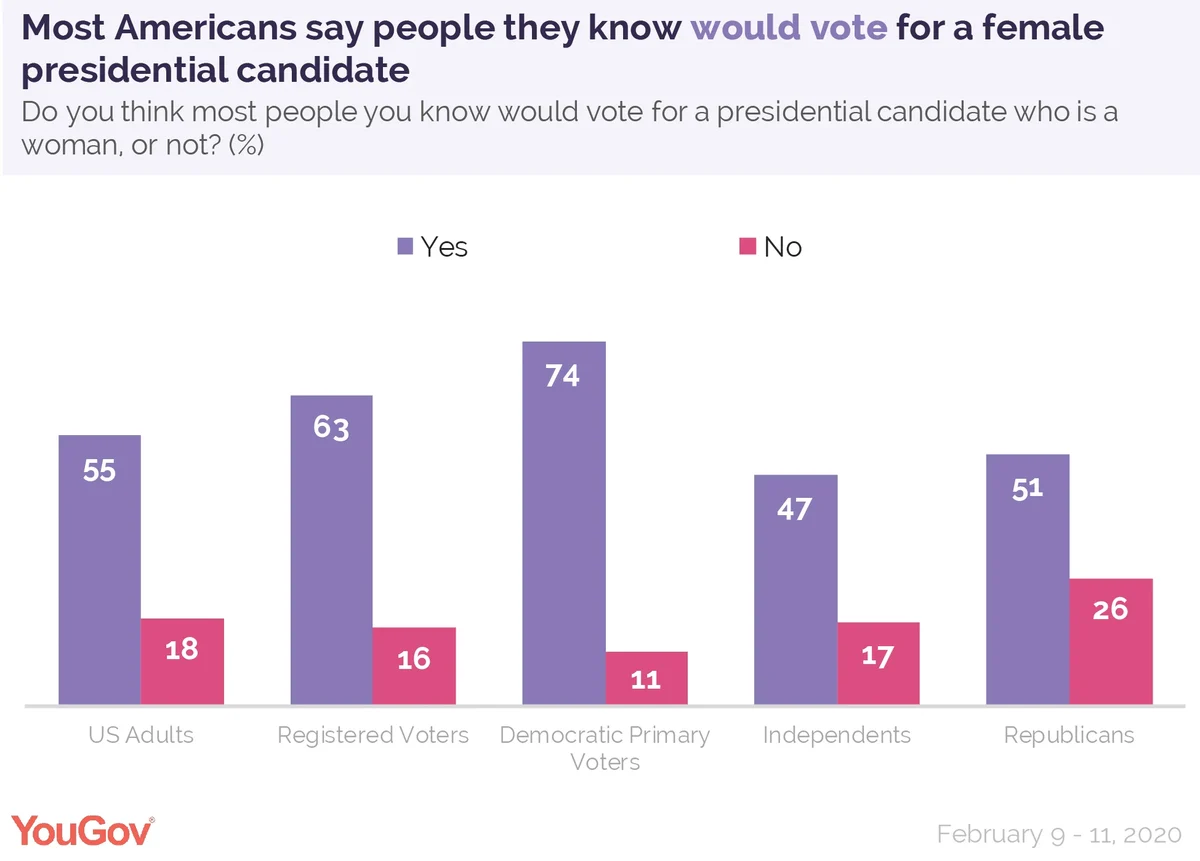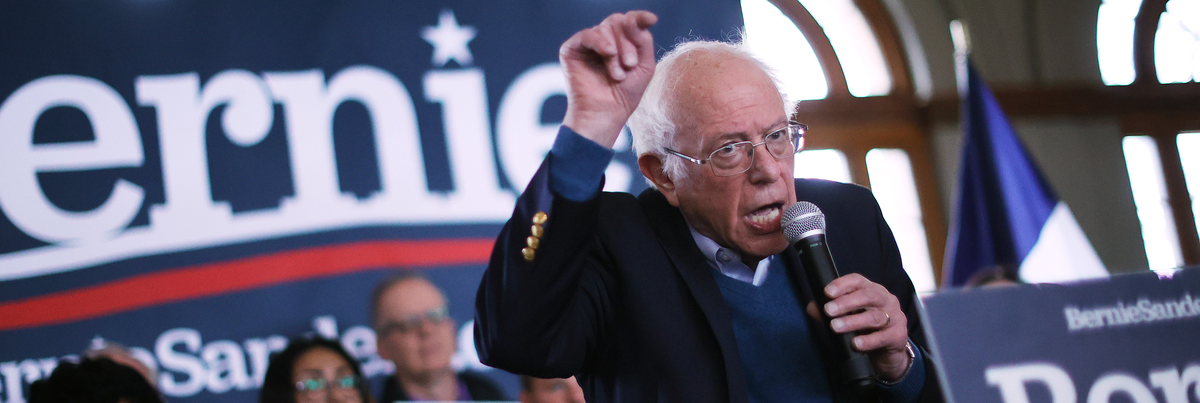The Iowa-New Hampshire nominating juggernaut may be on its way out, at least if Americans — especially Democratic primary voters — have their way.
In the latest Economist/YouGov poll, a majority (59%) say they think Iowa and New Hampshire have too much influence on the nomination, and just 15 percent of Democratic voters say those states should continue to kick off the voting season.
The diminution of Iowa in importance may have started. Its results so far have had a limited national impact on the campaign of former South Bend Mayor Pete Buttigieg. More than half of Democratic primary voters (55%) say he won the Iowa caucuses. That is more than twice the percentage of those who believe Vermont Senator Bernie Sanders won the first-in-the-nation caucus (25%). Yet Sanders, for the first time, is ahead among Democratic voters when they are asked their first choice.
The most recent Economist/YouGov poll was conducted just before the New Hampshire primary when a majority (53%) of Democratic voters correctly predicted that Sanders would emerge victorious from that state. Fewer than one in 10 anticipated Buttigieg (8%) winning the state, though he came second to Sanders.
Even fewer Democratic voters thought former Vice President Joe Biden (7%), Massachusetts Senator Elizabeth Warren (2%), or Minnesota Senator Amy Klobuchar (2%) would walk away with the most New Hampshire delegates. As the results were announced on Tuesday evening, Klobuchar surged to third place in the state with Warren and Biden behind her.
And while Iowa was criticized for its caucus chaos, it did have an impact on vote preference among other candidates: Biden slipped six points as Democratic voters’ first choice after the Iowa caucuses, where he finished fourth. Sanders gained three points, but so did former New York City Mayor Michael Bloomberg, who didn’t compete in Iowa and New Hampshire. Warren lost three points, and Buttigieg (+1) and Klobuchar (+1) hardly moved at all, nationally.
As for who will be the eventual nominee, more Democratic primary voters choose Sanders (30%) than name Biden (23%), and the response “not sure” landed in third place (17%) before Bloomberg (11%). No other candidate reached double digits as an anticipated winner of the eventual nomination.
For the last few weeks, Biden has been losing his large advantage among African-American voters. About two in five (38%) now say he is their first choice for President, down from 43 percent last week, and 51 percent a month ago. Sanders and Bloomberg now compete for second place with black voters. About one in five (19%) say they favor Sanders and 17 percent support Bloomberg.
While majorities of Democratic voters believe Biden, Sanders, and Bloomberg would defeat President Donald Trump, they are still divided about Buttigieg’s chances. There are two factors likely limiting a Buttigieg rise in the polls, something that is often associated with a victory in Iowa.
First is his age. At 38, he would be the youngest president ever. Although a majority (55%) of Democratic voters believe a younger President is more likely to have fresh new ideas, not many more believe an older President would find the job too difficult (Sanders, Biden, Bloomberg, Warren, and President Trump are all 70 and older – Sanders, Biden, and Bloomberg would turn 80 in their first terms, if elected). The public overall is closely divided on both questions.
Democratic voters who say age provides experience are supporting Sanders and Biden (with Warren and Bloomberg tied for third). Those who say age would make the job too difficult favor Buttigieg and Warren (at 70, she is the youngest of the 70-or-older group). But Buttigieg gets less of an advantage from Democratic voters who think a younger President would supply fresh new ideas. He trails Sanders in a group that includes Biden, Warren, and Bloomberg, the other septuagenarians.
Americans are also uncertain whether people they know would vote for a gay candidate, which could create a hurdle for Buttigieg as the first openly gay presidential candidate. One in three say people they know would vote for a gay candidate (32%), but one in three (34%) believe most of those they know would not.
A quarter of Democrats (25%) say their friends would not vote for a gay candidate, as do nearly half of Republicans (49%). In the South, this is particularly stark: a plurality (41%) believe most people they know would not vote for a presidential candidate who is gay.

Warren and Minnesota Senator Amy Klobuchar are in a similar, though less extreme, predicament. Asked if Warren would beat President Trump if she were the nominee, Democratic voters are split: 39 percent say she would beat Trump and 37 percent say she would lose.
However, a majority of the general public (55%) says that people they know would vote for a female presidential candidate. Yet 12 percent of Democrats and a quarter of Republicans (26%) say those they know would not. Those responses are similar for men and women, as well as for those in all age groups.

Just under half the public (48%) say they expect to see a woman president in their lifetimes, That is twice the percentage (24%) of those who expect there to be a gay leader in the White House.
Related: Impeachment acquittal leaves many dissatisfied with the process
Read the full toplines and crosstabs from this week’s Economist/YouGov poll here
Image: Getty











